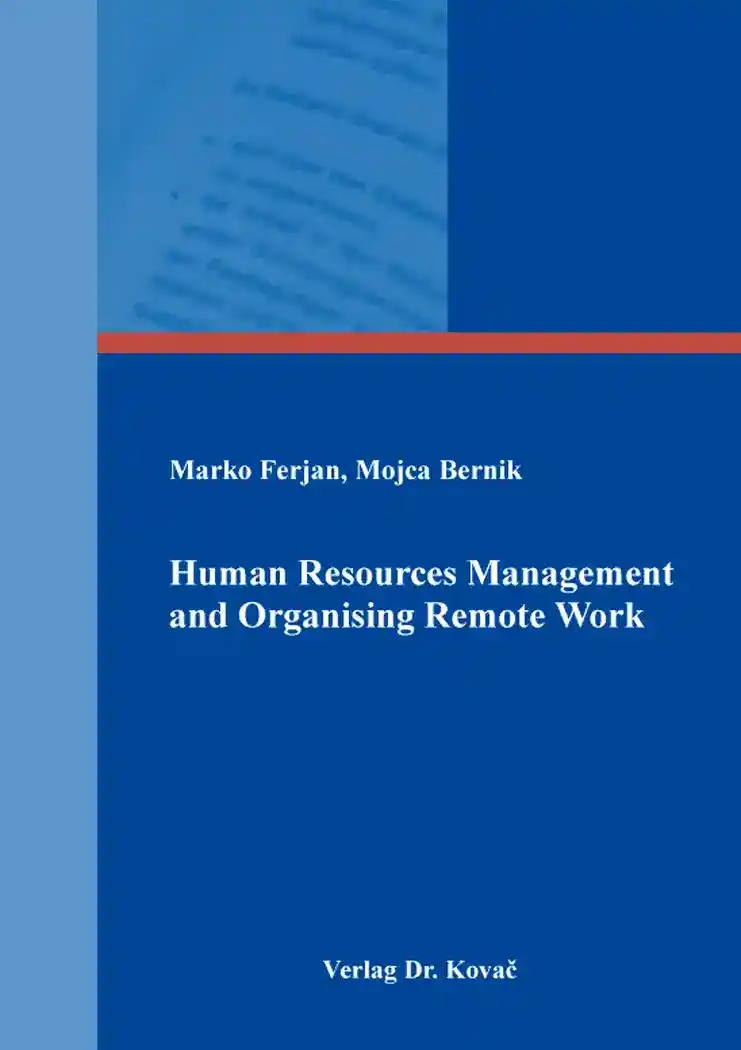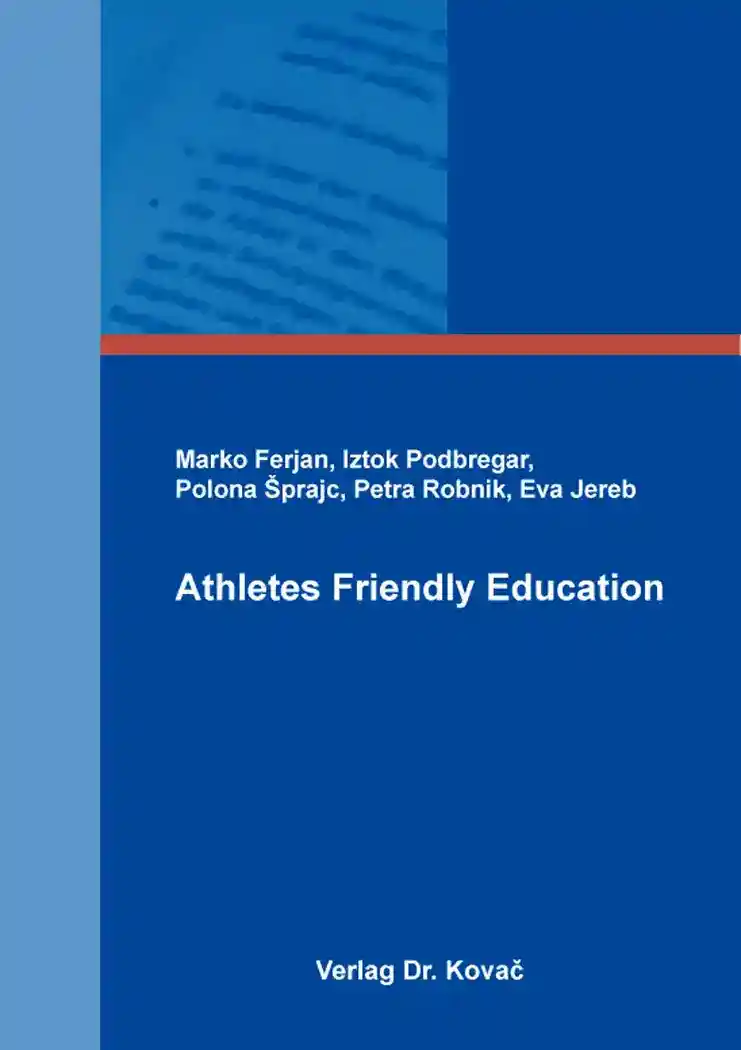Marko Ferjan / Mojca BernikHuman Resources Management and Organising Remote Work
– in englischer Sprache –
Personalwirtschaft, Band 63
Hamburg 2022, 162 Seiten
ISBN 978-3-339-12998-7 (Print)
ISBN 978-3-339-12999-4 (eBook)
Zum Inhalt
In March 2020, many countries declared a COVID-19 epidemic. During the epidemic, many people worked remotely instead of at their employer’s premises.
In our book, we will address the phenomenon of working style that allows professionals to work outside of a traditional work environment. Of course, we do not have in mind professions characterized by mobility (such as taxi drivers, etc.). We have in mind professions that, according to the traditional concept, work in factories, schools and offices.
This working style has different names like: “remote work”, “remote working”, “teleworking”, “working from home”, etc. For each name, of course, we can find different definitions.
When we study different names and definitions, we can see similarities or differences. However, it is basically the same thing. It is work from outside of a traditional work environment. Instead of in an office, factory, or classroom, employees have to do the same job somewhere else.
This book aims to answer two questions:
- 1. How did remote work during the COVID-19 pandemic affect human resources management (HRM) in organisations?
- 2. What segments of organisations and organising were affected by remote work during the COVID-19 pandemic?
Our work was undertaken within the larger context of research into management and business functions in circumstances of remote work. To put it more precisely: we were interested in human resources as one of business functions and in organising as one of management process functions, both within the context of remote work.
Our initial aim was to assess the nature of changes in the functions of human resources and organising, caused by remote work during the COVID-19 epidemic. More specifically, we were trying to determine whether the resulting changes were governed by a common set of rules, which is why our research encompassed disparate organisations: public institutions, such as primary schools and nurseries, state and local administration, and manufacturing and service companies.
We estimate that remote work did not lead to a change in number of employees working in departments. The phenomenon of “soldiering” is not true in case of remote workers. The productivity of workers is not adapted to the least productive worker. However, the nature of remote work makes it impossible to simply apply factory work rules to remote work.
Erschienen unter Creative Commons Lizenz
Schlagworte
Arbeiten von zu HauseCorona-PandemieHomeofficeHuman Resource Managementorganisationorganisational structureOrganisationsstrukturPersonalmanagementpersonnel administrationpersonnel managementproductivityProduktivitätRemote WorkSoldieringsoldieringteleworkingworking from homeIhr Werk im Verlag Dr. Kovač
Möchten Sie Ihre wissenschaftliche Arbeit publizieren? Erfahren Sie mehr über unsere günstigen Konditionen und unseren Service für Autorinnen und Autoren.
Weiteres Buch der Autoren
Hamburg 2021, ISBN 978-3-339-12146-2 (Print) | ISBN 978-3-339-12147-9 (eBook)

